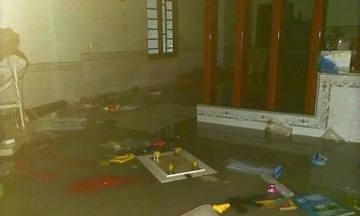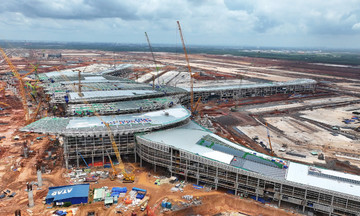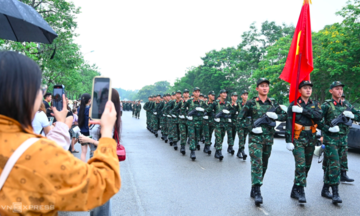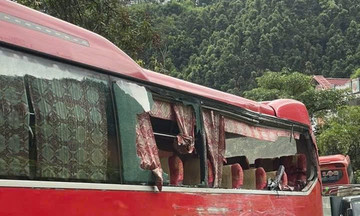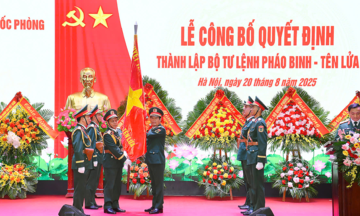Speaking at the mid-year review meeting of the Central Steering Committee for Science, Technology, Innovation, and Digital Transformation on 2/7, Party General Secretary To Lam emphasized the need to improve policies for attracting and employing high-quality personnel in these fields, especially leading experts in key areas such as artificial intelligence, semiconductors, and new materials.
He urged agencies to quickly develop plans for developing, incentivizing, and effectively utilizing expert teams, while implementing the Strategy for attracting talent to 2030, with a vision to 2050. This includes focusing on criteria, working regulations, incentive regimes, and separate recruitment processes for chief engineers and chief architects who lead the implementation of groundbreaking initiatives and national-level strategies.
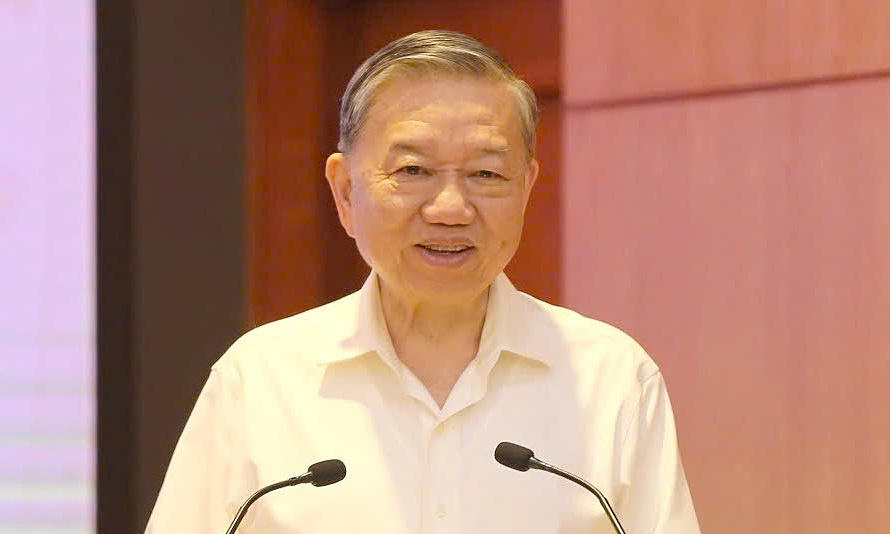 |
Party General Secretary To Lam speaking on the morning of 2/7. Photo: Communist Party Information Portal |
Party General Secretary To Lam speaking on the morning of 2/7. Photo: Communist Party Information Portal
To enhance technological capacity, the General Secretary assigned relevant agencies to establish interdisciplinary task forces to support Vietnamese businesses in searching, negotiating, and acquiring small foreign technology companies with important intellectual property or technological know-how. He also suggested researching policies to encourage the establishment of start-ups within research institutes and universities, and creating programs to connect scientists with businesses to promote product commercialization.
The science and technology organizational system needs to be streamlined for efficiency, focusing on developing strong research institutions and comprehensively evaluating the nationwide laboratory system.
The Party leader stressed the importance of promoting strategic technologies like AI, big data, blockchain, robotics, semiconductors, new materials, biomedical technology, and cybersecurity. Ministries and sectors were tasked with completing and putting into operation the National Data Center to ensure infrastructure for large-scale data analysis and management.
The budget will prioritize three areas: groundbreaking interdisciplinary and inter-regional science, technology, innovation, and digital transformation projects; initiatives serving the new administrative model; and critically important projects in the national strategy.
He also emphasized the need to ensure the safety and security of national data, personal data, and intellectual property rights, affirming that digital transformation is the "central nervous system" of the two-tiered government model. "Without digital transformation, the two-tiered administrative model cannot operate effectively," he said.
Regarding digital transformation, he called for accelerating nationwide 5G coverage, linked with the deployment of satellite internet; addressing the issue of poor signal and lack of electricity in remote villages; and ensuring a stable power supply for digital infrastructure. Localities need to allocate financial resources to ensure smooth transmission lines down to the commune level.
According to the report at the meeting, the innovation ecosystem continued to thrive with 858 science and technology enterprises, 45 high-tech enterprises, and over 73,000 digital technology businesses. The Ministry of Science and Technology mobilized 277 experts to participate in key programs on artificial intelligence, contributing to building a strategic workforce for key technology sectors.
Vu Tuan



